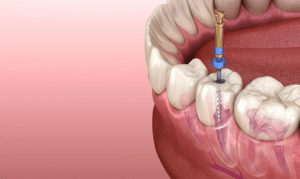Sleep Breathing Disorders, like mouth breathing, can be very bad for your child’s health. A healthy way to breathe is always breathing in and out through the nose while keeping your mouth closed. Our nose is made to warm the air and filter it to get rid of any dust or dirt. If the nose isn’t working right, the balance between the nose and the mouth is thrown off. Children who breathe through their mouths are in a lot more trouble than we used to think.
How Do You Know Your Child Is Mouth Breathing?
Have you ever seen your child breathe with their mouth open? It could happen while you eat, sleep, or watch TV. It’s common to think that your child will outgrow this habit, but it’s important for parents to look for signs of mouth breathing in their children because they may not be able to explain their symptoms like adults. Here are a few signs of mouth breathing in your child:
1. Dry Mouth And Lips
People who breathe through their mouths always have dry mouths and cracked lips. If you wake up to drink water, that’s a sign. It also makes you more likely to get cavities and gum disease.
2. Bad Breath
Bad breath is more likely to happen when your mouth is dry.
3. Asthma And Allergic Cold
When we breathe through our mouths instead of our noses, which act as a natural air filter, we are more likely to get allergies and colds. Mouth breathing also decreases the amount of oxygen in the air and how well the lungs work, which makes asthma worse.
4. Changes To The Jaw And Teeth
When your mouth is open, your tongue is facing forward and down. This puts constant pressure on the jaws, which changes how the teeth line up and how the jaws grow. The palate also gets narrow and quite high, which makes a face look long and thin with small chins that go back. They always smile with their gums showing.
5. Incorrect Swallowing
When this happens, the tongue moves forward to help the person breathe better. This is called an abnormal “tongue thrust swallow.” People who have a tongue thrust may also have trouble with their speech. The lip muscles may also get weaker and shorter if you keep your mouth open for a long time. You can visit a nearby dental clinic for the best mouth-breathing-related treatment.
FAQs
There are five subtle signs that your child may be mouth breathing. Changes in how the face looks: You may notice that your child’s jaw gets longer and narrower because they can’t breathe well. When looking at their profile, mouth breathers may have a narrower, longer face with a lower jaw that sticks out.
Some of the most common reasons babies and kids breathe through their mouths are allergies, enlarged adenoids, tonsils, and birth defects like choanal atresia, cleft palate, or Pierre Robin syndrome.
If the air is dry, you should use a humidifier that produces a cool mist. Use saline nose drops to moisturize the nasal passages. Have your kid join you in the bathroom while the hot shower is running, and encourage them to inhale the steam.
Dentists are often the first medical professionals to recognize the symptoms of mouth breathing, including anything from tooth decay and gum infections to enlarged tonsils. Not only can we treat the uncomfortable and sometimes painful symptoms that come with mouth breathing, but we can also work with you to address the problem itself!





